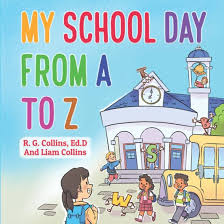Exploring Radio X: The Sound of Alternative Rock in the UK

Introduction
Radio X, the UK’s premier alternative rock radio station, has gained significant traction since its rebranding from XFM in 2015. Its mission to curate a playlist that blends iconic rock anthems with the latest alternative hits resonates deeply with a diverse audience. As music streaming trends evolve, Radio X continues to hold a relevant position in the ever-competitive landscape of UK radio, making waves among listeners who crave a mix of the mainstream and the obscure.
Genre and Programming
Radio X is renowned for its eclectic programming that includes a mix of classic tracks from artists like Oasis, Radiohead, and The Killers, alongside rising stars in the indie and alternative scene. The station has a reputation for championing new music, often introducing listeners to up-and-coming bands that may later achieve commercial success. Regular shows like the “Radio X Evening Show” feature host Chris Moyles, who engages audiences with a blend of discussions, interviews, and music, ensuring that the listener experience is not just about music but also about connection.
Impact and Reach
With over 1.3 million weekly listeners, Radio X holds a significant position in the UK’s radio landscape. Its audience spans various demographics, primarily appealing to a young adult audience aged 25-34 years. The station’s influence is amplified by its digital platforms, with online streaming and social media engagement creating a vibrant community of music enthusiasts. Additionally, partnerships with festivals and live events allow Radio X to promote both established and emerging artists.
Community and Cultural Significance
Beyond music, Radio X engages with social issues, aligning its programming with national trends and community concerns. Campaigns and initiatives focused on mental health awareness, racism in music, and the importance of local talent showcase the station’s commitment to creating a positive impact. The annual Radio X Presents events also provide a platform for local musicians, fostering community connections and encouraging local music scenes.
Conclusion
As Radio X continues to adapt and grow within the changing landscape of broadcasting, its role as a crucial player in the alternative rock genre remains steadfast. The station aims to innovate its music offerings while maintaining its core ethos of providing a platform for diverse musical talent. For listeners across the UK looking for an alternative to mainstream radio, Radio X stands out as a beacon of authentic sound, vibrant community, and active cultural participation. Its future looks promising as it continues to shape and be shaped by the pulse of alternative music culture.









